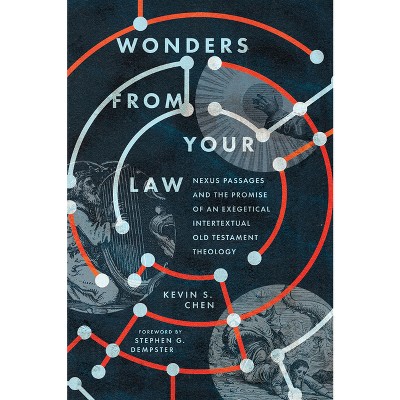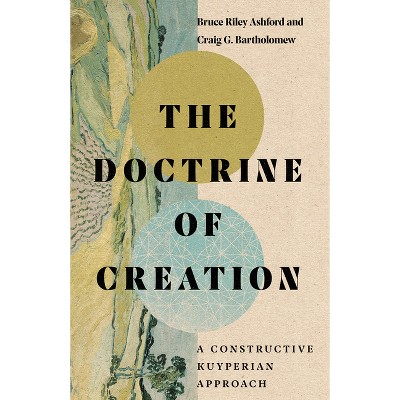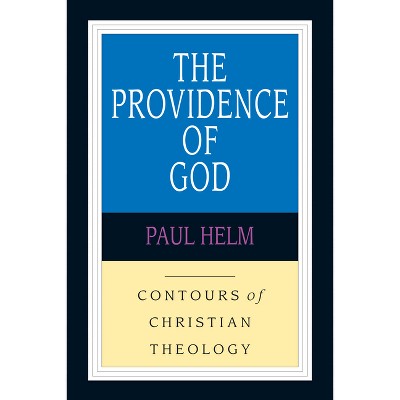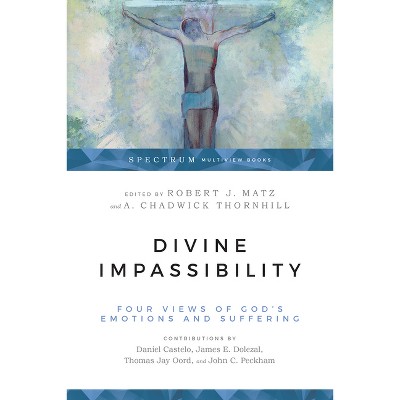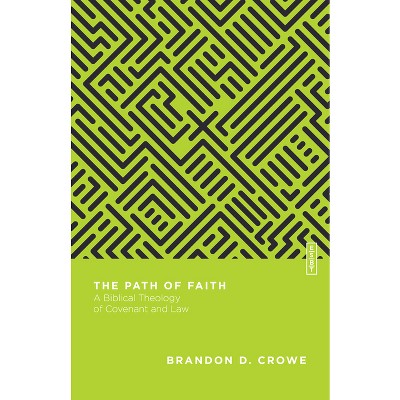Sponsored

Light Unapproachable - by Ronni Kurtz (Paperback)
In Stock
Sponsored
About this item
Highlights
- How can finite creatures know an infinite God?
- About the Author: Ronni Kurtz (PhD, Midwestern Baptist Theological Seminary) is an assistant professor of theology at Cedarville University.
- 224 Pages
- Religion + Beliefs, Christian Theology
Description
About the Book
How can finite creatures know an infinite God? Retrieving key insight from Scripture and patristic, medieval, and modern theologians, Ronni Kurtz offers a rich analysis of divine incomprehensibility. While our language cannot capture the full mystery of God, we can learn to speak of God faithfully, truthfully, and prayerfully.
Book Synopsis
How can finite creatures know an infinite God? Retrieving key insight from Scripture and patristic, medieval, and modern theologians, Ronni Kurtz offers a rich analysis of divine incomprehensibility. While our language cannot capture the full mystery of God, we can learn to speak of God faithfully, truthfully, and prayerfully.
Review Quotes
"If man's chief end is to glorify God and enjoy him forever, as one catechism puts it, it would seem that knowledge of God should be possible. Yet, all the historic Christian traditions affirm the incomprehensibility of God. How is this possible? Ronni Kurtz has provided for us a masterful demonstration of how incomprehensibility must be accepted as a divine perfection and therefore as something extolling God's glory. This volume shows the implications of this attribute for the practice of theology itself, showing that the knowledge of God does not imply conceptual mastery."
"It is nothing short of amazing that so few theologians today have written on God's incomprehensibility. Perhaps this is not surprising. After all, the title wave of modern theology has left us with a domesticated God, vanquishing the beauty of the infinite. In the wake of this wasteland, Ronni Kurtz is planting new seeds with deep roots in sacred Scripture and the Great Tradition. With a clarity that matches the accessibility of his research, Kurtz demonstrates that the incomprehensibility of God is foundational to the recovery of classical theism today. More still, God's incomprehensibility is like a rich garden in which each vine is connected to the next as God's incomprehensibility connects everything from divine simplicity to the analogy of being to our participation in the beatific vision. Truly, Kurtz has planted the seeds for a great harvest to come."
"Kurtz's Light Unapproachable starts out with solid Christian common sense about how God accommodates revelation to us, then elaborates it with biblical analysis, fortifies it with historical witnesses, and applies it to a project in theological method with great promise for a wide range of readers."
"This is a lovely book-rooted in and expressive of love for God, love for Jesus Christ, love for Scripture, and love for all who thirst to know the God who reveals himself in Christ and through the biblical Word. Kurtz has managed to unite faith, scholarship, profundity, and readability on a crucial topic. We need more books like this one!"
"With its negative prefix, divine incomprehensibility appears to say that knowledge of God is impossible, thereby leading some people to become agnostic. Like appearances, however, prefixes too can be deceiving. By retrieving the classical formulation of the doctrine of divine incomprehensibility together with the all-important Creator-creature distinction, Ronni Kurtz ably demonstrates why divine incomprehensibility need not lead to agnosticism. Unlike God, Light Unapproachable is far from being incomprehensible. It is a clearly written, cogently argued, and readily comprehensible account of how theology can apprehend what the accommodating God has chosen to reveal about himself."
"With the grace of an experienced teacher, Ronni Kurtz shows why the confession of God's ultimate incomprehensibility has formed the heart of Christian theology since at least the fourth century. His book draws the reader into the depths of the God revealed as mystery."
"If man's chief end is to glorify God and enjoy him forever, as one catechism puts it, it would seem that knowledge of God should be possible. Yet, all the historic Christian traditions affirm the incomprehensibility of God. How is this possible? Ronni Kurtz has provided for us a masterful demonstration of how incomprehensibility must be accepted as a divine perfection and therefore as something extolling God's glory. This volume shows the implications of this attribute for the practice of theology itself, showing that the knowledge of God does not imply conceptual mastery."
--Adonis Vidu, Andrew Mutch Distinguished Professor of Theology at Gordon-Conwell Theological Seminary"It is nothing short of amazing that so few theologians today have written on God's incomprehensibility. Perhaps this is not surprising. After all, the title wave of modern theology has left us with a domesticated God, vanquishing the beauty of the infinite. In the wake of this wasteland, Ronni Kurtz is planting new seeds with deep roots in sacred Scripture and the Great Tradition. With a clarity that matches the accessibility of his research, Kurtz demonstrates that the incomprehensibility of God is foundational to the recovery of classical theism today. More still, God's incomprehensibility is like a rich garden in which each vine is connected to the next as God's incomprehensibility connects everything from divine simplicity to the analogy of being to our participation in the beatific vision. Truly, Kurtz has planted the seeds for a great harvest to come."
--Matthew Barrett, professor of Christian theology at Midwestern Baptist Theological Seminary and author of None Greater and Simply Trinity"Kurtz's Light Unapproachable starts out with solid Christian common sense about how God accommodates revelation to us, then elaborates it with biblical analysis, fortifies it with historical witnesses, and applies it to a project in theological method with great promise for a wide range of readers."
--Fred Sanders, systematic theologian and professor at the Torrey Honors College at Biola University"This is a lovely book--rooted in and expressive of love for God, love for Jesus Christ, love for Scripture, and love for all who thirst to know the God who reveals himself in Christ and through the biblical Word. Kurtz has managed to unite faith, scholarship, profundity, and readability on a crucial topic. We need more books like this one!"
--Matthew Levering, James N. Jr. and Mary D. Perry Chair of Theology at Mundelein Seminary"With its negative prefix, divine incomprehensibility appears to say that knowledge of God is impossible, thereby leading some people to become agnostic. Like appearances, however, prefixes too can be deceiving. By retrieving the classical formulation of the doctrine of divine incomprehensibility together with the all-important Creator-creature distinction, Ronni Kurtz ably demonstrates why divine incomprehensibility need not lead to agnosticism. Unlike God, Light Unapproachable is far from being incomprehensible. It is a clearly written, cogently argued, and readily comprehensible account of how theology can apprehend what the accommodating God has chosen to reveal about himself."
--Kevin Vanhoozer, research professor of systematic theology at Trinity Evangelical Divinity School"With the grace of an experienced teacher, Ronni Kurtz shows why the confession of God's ultimate incomprehensibility has formed the heart of Christian theology since at least the fourth century. His book draws the reader into the depths of the God revealed as mystery."
--Andrew Radde-Gallwitz, professor in the Program of Liberal Studies at the University of Notre DameAbout the Author
Ronni Kurtz (PhD, Midwestern Baptist Theological Seminary) is an assistant professor of theology at Cedarville University. He is also the author of No Shadow of Turning: Divine Immutability and the Economy of Redemption and the Fruitful Theology: How the Life of the Mind Leads to the Life of the Soul.
Shipping details
Return details
Trending Non-Fiction






